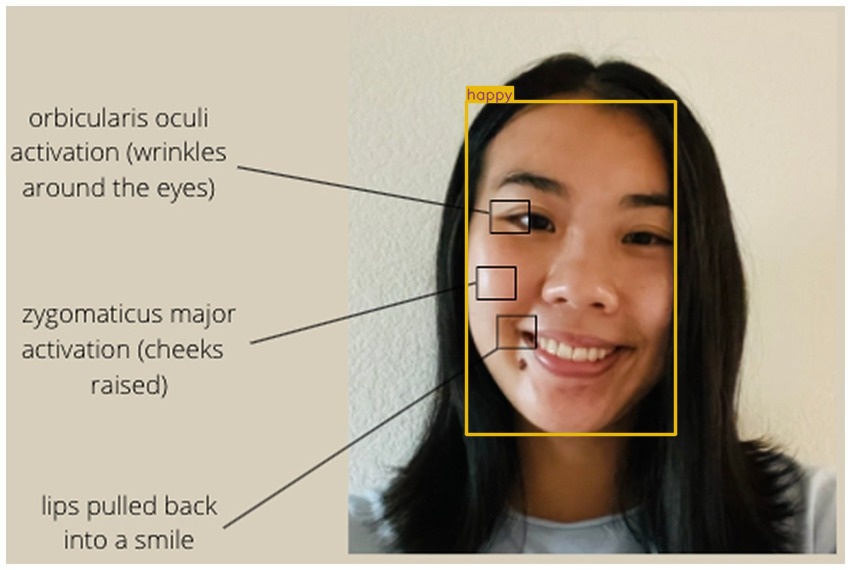Zygomatic Major Muscles
The zygomatic major muscles are paired facial muscles extending from the cheekbones to the corners of the mouth, primarily responsible for pulling the lips upward and outward. They play a crucial role in producing smiles, laughter, and expressions of joy, but also contribute to social communication and emotional signaling. Beyond simple movement, the zygomatic major muscles serve as essential indicators of genuine versus forced emotion, making them a vital area of study in psychology, behavioral research, and Emotion AI.
Psychological and Emotional Relevance
In psychology, the zygomatic major muscles are strongly associated with positive emotional expression :
- Genuine vs. Social Smiles: A true Duchenne smile involves both the zygomatic major and the orbicularis oculi (eye crinkling), while a polite or forced smile engages only the zygomatic major.
- Emotional Authenticity: Researchers often use these muscles to distinguish authentic happiness from socially motivated expressions.
- Social Communication: Smiling enhances social bonds, reduces tension, and influences perceptions of trustworthiness and approachability.
- Clinical Psychology: Reduced activation of the zygomatic major can be a sign of depression, flat affect, or emotional suppression.

Emotion AI and Zygomatic Major Muscles
In the field of Emotion AI , zygomatic major movement is a critical marker for emotion detection systems:
- Facial Expression Analysis: AI algorithms monitor cheek elevation and lip corner movement to detect happiness, amusement, or politeness.
- Authenticity Detection: By comparing zygomatic activation with eye-region cues, AI can help identify whether a smile is genuine or socially performed.
- Mental Health Insights: Flattened or inconsistent activation may indicate depressive symptoms, social anxiety, or emotional blunting.
- Applications: From user experience research (e.g., gauging joy during product interaction) to workplace engagement studies and therapy support.
Ethical Considerations
Because zygomatic major movement is closely tied to authenticity and emotional truth, ethical care is needed when using it in AI analysis. Misinterpreting cultural norms or overgeneralizing smiles could lead to false assumptions. Emotion AI should treat such cues as part of a broader emotional landscape rather than conclusive evidence.
Discover how Emotion AI analyzes subtle facial muscle cues like the zygomatic major to reveal authentic emotional states. Explore more with Imentiv →